Marjoram
Origanum majorana
Certified Organic
A fast-growing perennial herb with countless uses.
Marjoram's flavor is similar to that of oregano, but it is definitely more sweet, and it has stronger, clearer tones of lemon and pine (though it doesn't taste much like either of these). This culinary herb is at home in cuisines and medicinal traditions around the world. It rings like a bell when sprinkled into a salad with parsley, basil, and other herbs; it's also terrific on top of a pilaf or diced finely and thrown on any main dish just before serving.
Marjoram has roots in the Mediterranean and Arabian Peninsula, where it thrives along dry, mountainous slopes. The ancient Greeks associated Marjoram with Aphrodite and wore fragrant wreaths made from the herb at weddings. Native bees love Marjoram too and spend summer afternoons foraging its soft, fluffy blooms.
Couldn't load pickup availability
Growing instructions
Product Details
| Days to Maturity | 70 days |
|---|---|
| Days to Germination | 7 to 21 days |
| Width at Maturity | 10 inches |
| Height at Maturity | 10 to 12 inches |
| Hardiness Zone Range | Annual |
| Sun Conditions | Mostly Shade (2-4 hours Sun), Partial Sun (4-6 hours Sun), Full Sun (8+ Hours Sun) |
| Planting Depth | 1/4" |
| Row Spacing | 18 inches |
| Plant Spacing | 12 inches |
About the artist
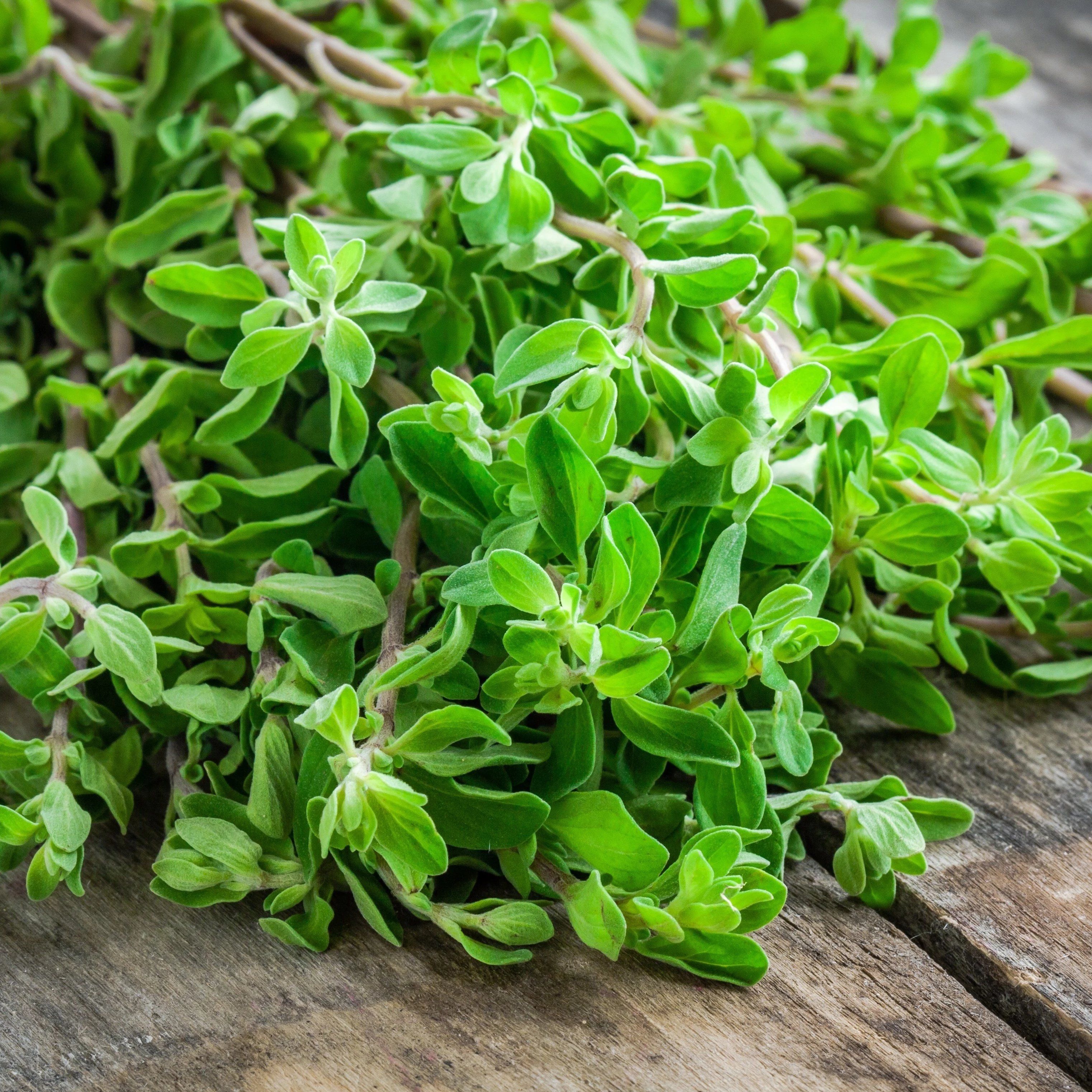
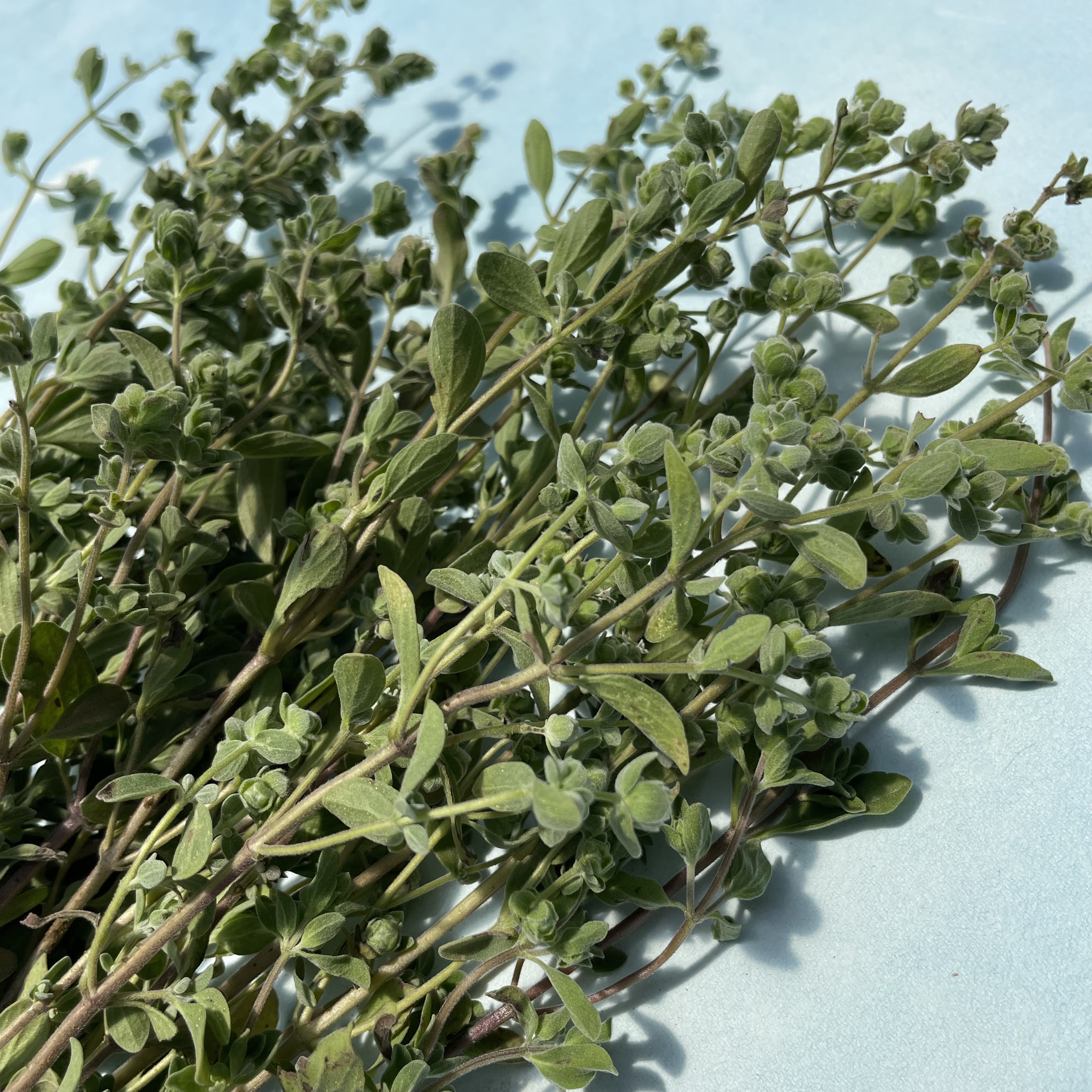
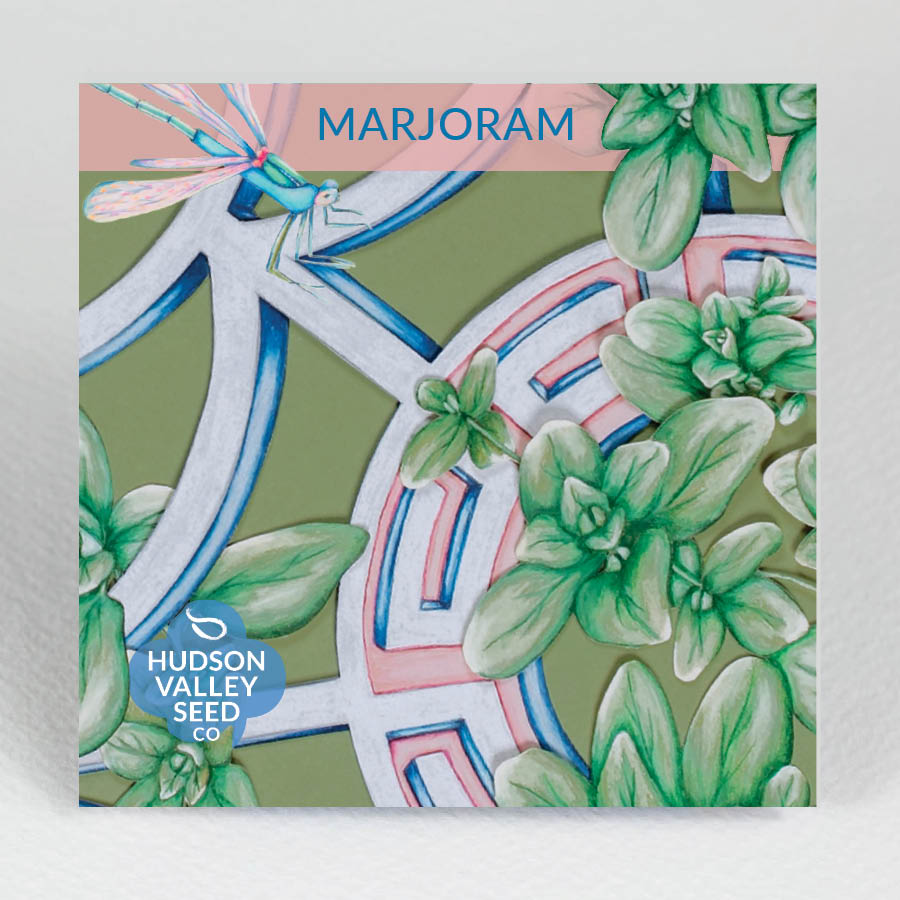
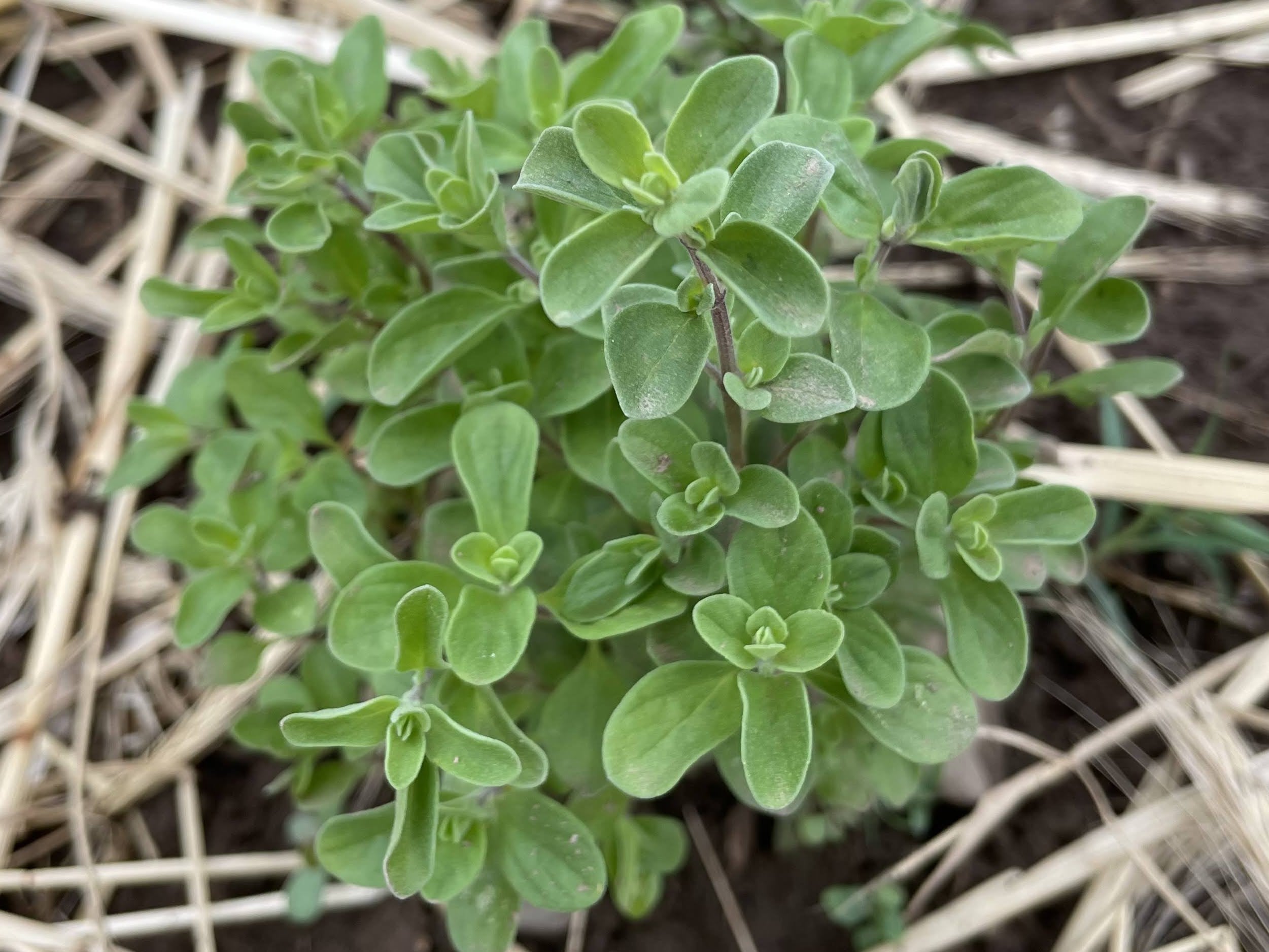
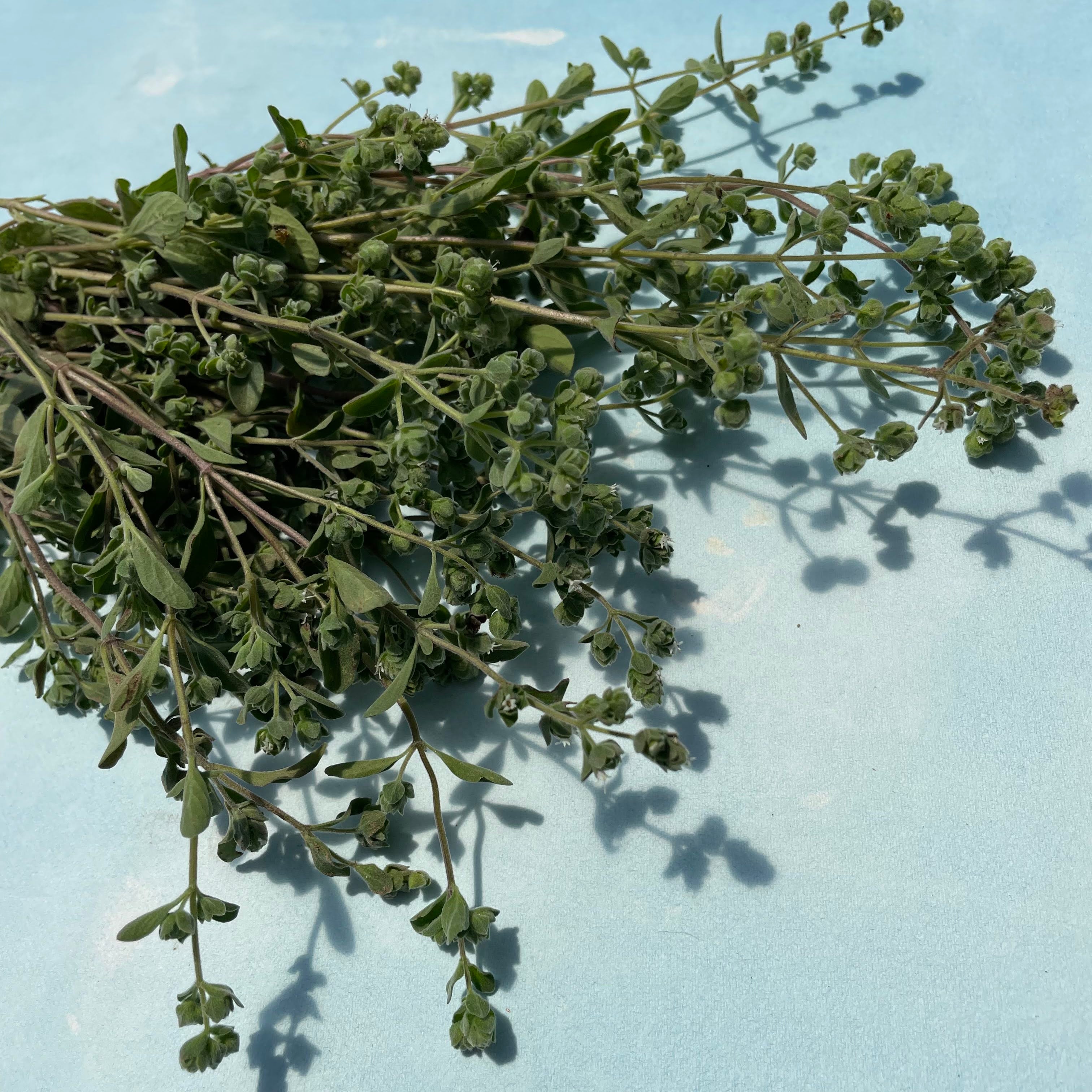

Marjoram
- Regular price
-
$3.69 - Regular price
-
- Sale price
-
$3.69






